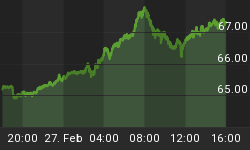The killing of former Lebanese Prime Minister Rafik Hariri was until recently widely believed to have been perpetrated by the Syrians, or at least on their behalf. It was the assassination of Mr. Hariri that led to the forced departure of Syrian troops from Lebanon as a result of international pressure and wide-ranging opposition from the Lebanese street.
Blame for much of the political dirty games that have taken place in the country, such as the assassination of the former Lebanese prime minister was directed at Syria. Mr. Hariri was known for having stood up to Syrian meddling in Lebanese affairs.
As any Lebanese politician will attest, blaming Syria is not as easy as it sounds and the consequences for implicating Damascus can be deadly, to say the least. Lebanese politicians openly opposed to Damascus tend to face turbulence along their political careers as Damascus has always had its say in Lebanese affairs.
So is it coincidental or reality that more recently accusing fingers have begun pointing at Lebanon' s other neighbor, Israel?
Indeed, both of Lebanon's neighbors, Israel to the south and Syria to the east and north, have never shied away from crossing the border into much weaker Lebanon by taking matters into their own hands and resorting to the physical elimination of political opponents, as with the Hariri assassination on February 14, 2005.
It was an Israeli raid in the heart of Beirut in 1971 when a commando team led by Ehud Barak landed in the Lebanese capital and assassinated three prominent Palestinian leaders, Kamal Nasser, Kamal Adwan and Abu Youssef, that laid the groundwork for the civil war that was to erupt four years later. Claiming that the Lebanese state was not able to defend them, the Palestinians began arming in earnest and before too long the Palestine Liberation Organization became a state within a state.
This time, whether real or fictitious, blaming Israel is very convenient for everyone, except Israel, of course. The latest scandal involving Israel's intervention in Beirut's politics has emerged with the dismantling of an Israeli spy ring operating in Lebanon in which more than 70 people have been arrested in the last 18 months.
Among those accused of spying for Israel are four top Lebanese Army and internal security officers. Since the beginning of the United Nations-led investigation into the murder of Mr. Hariri much of the evidence centered around cellular telephone calls and communications. Press reports from Beirut now name Charbel Qazzi, the man in charge of transmission and broadcasting at one of the two state-owned cellular phone providers, Alfa.
The Beirut newspaper As-Safir reported that Mr. Qazzi confessed to having installed electronic devices in Alfa equipment that would give Israeli intelligence agents access to data that would allow the Mossad, Israel's external intelligence agency, to track targets in Lebanon. A few weeks ago a second man at the same cellular phone company was arrested on similar charges. And then a third man was also detained and also accused of spying for Israel.
That the three men working for Alfa confessed to working for Israeli intelligence is not surprising. Under interrogation anyone can admit to what his interrogators want him to admit. The real question is whether Israel is really behind the killing of Hariri and then to what end would such an assassination serve.
In either case, be it true or not, this latest twist in the tale comes at a convenient time to throw a spanner in the travails and the legality of the Special Tribunal for Lebanon, an independent body set up by the U.N to investigate and prosecute those responsible for the assassination of the late prime minister. The Tribunal was expected to publish its findings this coming September but these latest revelations puts everything into question.
Assuming that Israel is indeed the real culprit in the Hariri assassination, as in every crime there must be a motive. What would Israel gain from killing the former prime minster? Does Israel benefit from chaos in Lebanon? Unlikely.
In fact, Israel far prefers that the Syrians remain in Lebanon. Why? When Syrian troops were in control of Lebanon, Israel had a return address should any attack on its northern border emanate from Lebanese territory. With Syrian troops now out of Lebanon the pro-Iranian Lebanese Shiite movement, Hezbollah, has filled the security vacuum left when Damascus pulled out.
For Israel, dealing with Hezbollah is far more precarious than dealing with the Syrians. But then again, nothing is ever clear in the Middle East muddle.
"Spies, Lies and Goodbyes" -- Part 2 coming Saturday.
Source: http://oilprice.com/Geo-Politics/Middle-East/Spies-Lies-and-Goodbyes---Part-1.html
By Claude Salhani for Oilprice.com who offer detailed analysis on Oil, alternative Energy, Commodities, Finance and Geopolitics. They also provide free Geopolitical intelligence to help investors gain a greater understanding of world events and the impact they have on certain regions and sectors. Visit: http://www.oilprice.com















